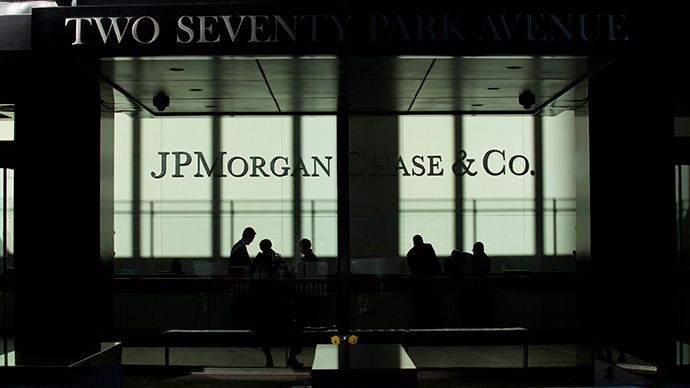Death finance: Bankers have never been so insecure

Conspiracy theories suggest a massive banking cover up leading to widespread murder in financial markets. Whatever is afoot, several high profile banker deaths raise questions about the sustainability of the system.
A popular myth persists that there were wholesale suicides after the 1929 Great Crash. Centre-left economic historian, JK Galbraith, skewered this theory when he analyzed the statistics in the wake of the Wall Street Crash, which preceded the great depression.
Nearly a century later, a remarkable uptick in banker suicides has raised questions with at least 6 suspicious deaths in recent weeks. Two men jumped from the top of JP Morgan skyscrapers alone (one each in London and Hong Kong).
Modern investment banking is a hideously high pressure business. This is exacerbated by a rather juvenile macho culture where hours are long (even when markets are slow) and management is more akin to a caricature sergeant major on parade than anything approaching coherent, structured leadership.
Despite daft government subsidy via bailouts and ‘QE’ handing cash to banks, executives must come to terms with evolution in electronic markets. Banking as an industry peaked in 2008 generating massive insecurity, with hundreds of thousands laid off. A vast multitude of new regulations (some good, some less sensible, some downright dumb) will continue to heap pressure on the banking industry for the next decade. Not even the socialist-corporate oligopoly which currently passes for western government can save the bankers from downsizing.
Meanwhile, some observers reckon the current situation comes closer to a gripping 2009 thriller, “The International”, which chronicled a fictional investment bank doing dubious deals and murdering with alacrity. Banker deaths in 2014 are thus being seen as allied to a massive conspiracy.
Pending toxicology reports on a third JPMorgan death, and even if we dismiss the death of a Tata motors MD in Thailand, a remarkable number of dubious deaths/suicides have occurred in recent weeks, alongside some unexplained disappearances. Nevertheless, there are several hundred thousand working in each of the financial districts of London and New York alone, so, while remarkable, this cluster of deaths is hardly beyond the bounds of statistical probability. JPM alone employs 52,000 investment banking staff, so the 7 sigma probability threshold ought to hold true in a world with 1,000,000 investment bankers.

Perhaps there is a grand conspiracy across the world’s financial markets? Then again, most financial secrets tend to leak out sooner or later in this porous information environment. The idea that this mega conspiracy has reached the point of people dying across continents sounds rather far-fetched. Market news tends to seep out through multiple avenues: whether anticipated, insider, or simply unorthodox crunching of available data…
The truth is therefore probably rather more banal. The banking industry has long since practiced a form of ‘Stockholm syndrome management’ with its staff, rendering them largely dysfunctional on Main Street where they lose not merely their lavish remuneration complete with subsidized mortgages, but also the support system of elite assistants and teams of ‘lackies’, who ensure they barely have to think about anything except the next deal. The higher up the management tree bankers get, the more reliant they are on this ‘system.’ Ultimately, all banks have a surfeit of candidates at the top and many talented personnel are squeezed out. Stress driving insecurity builds alongside a gradual realization that outside the (perversely) competitive but cosseting investment bank environment, many managers simply cannot envisage coping. In a world where the taper terror and a decade of dismal government have led us to the brink of ongoing crisis, it is easy to see why sadly, some are driven to take their lives. In the minds of stressed executives, an investment bank can easily become a gilded cage feeding suicidal urges.
Those despising anything pertaining to finance may even (foolishly) rejoice at the deaths of bankers. There are many things wrong with contemporary finance which need fixing (especially those dubious links with government), but the premature demise of fellow humans is not something to celebrate here.
Ultimately, the financial system is in a parlous position and recent government changes have done little to ameliorate the situation. We can blame cowardice, incompetence, lack of vision, and plutocratic self-preservation amongst the banker-government-multinational socialist-corporatist nexus for many failings here. However, with the euro crisis festering, emerging markets in chaos and no clear understanding of western economic resilience to tapering...one thing ought to be clear: Bankers have never been more insecure.
The statements, views and opinions expressed in this column are solely those of the author and do not necessarily represent those of RT.
The statements, views and opinions expressed in this column are solely those of the author and do not necessarily represent those of RT.













